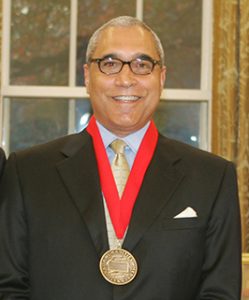On Wednesday, October 6, the Lynnwood Times facilitated an interview forum with several candidates running for Mayoral, City Council, and School District positions in Lynnwood and Mukilteo. It was an insightful experience listening to each candidates’ response and perspective. There was one question in particular, though, that has left staff both puzzled and concerned: What does equity mean to you?
Even though the question did not require interviewees to define the word, it was apparent that most candidates understood the term differently. The lack of a consensus around what equity means, or at least the inability to articulate it accurately, was puzzling. What was intriguing was the criticism some candidates had towards the word.
Two candidates referred to equity as a divisive term. One said that “equity has no place in our schools.” While this response to equity was a bit alarming, maybe they have a point. Perhaps “equity” is divisive, if not solely for the fact that Americans are divided on what it means.
Finding common ground with equity
Digging deeper, what is the point of being divided by a word that many don’t understand and even more interpret differently? How can the debate be productive if its participants can’t agree on a premise?
“People who disagree the most productively start by finding common ground — no matter how narrow it is,” explains Julia Dhar, the Leader of Behavioral Economics and Behavioral Insights Initiative at Boston Consulting Group. “They identify the thing we can all agree on and go from there.”
In her Ted Talk on how to disagree productively, Dhar teaches why finding common ground is a prerequisite to a productive debate. According to her, debates must begin by “inviting [people] into what psychologists call shared reality.”
“And shared reality is the antidote to alternative facts,” she says. “The conflict, of course, is still there. That’s why it’s a debate. Shared reality just gives us a platform to start to talk about it.”
Applying this principle to the equity debate, if political discourse surrounding the topic is to be fruitful, there must first be an agreement on what the word means, thereby entering into the same shared reality.
So what does equity mean?

To understand what equity means, the Lynnwood Times spoke with Assistant Professor of Sociology and Medical Education and Clinical Sciences from Washington State University, Dr. Anna Zamora-Kapoor. While some believe that equity implies equal outcomes, Dr. Kapoor explains how equity focuses on achieving equal opportunity.
“The concept of equity is close to fairness and equal opportunity, and usually contrasted to equality,” she says. “Equality provides everyone with the same resources while equity recognizes that some groups need additional resources to have an equal opportunity to thrive.”
Dr. Kapoor gave two relevant examples of equity and how it relates to equality. “All clinics in Washington state offer the COVID-19 vaccine (equality), and those with a high percentage of non-English speaking patients might hire medical interpreters to better serve their patients (equity),” she says.
Another example she gave revolves around the classroom. She explained how “all children aged five and older have access to public school,” which is equality, “and those with disabilities have access to additional services to help them thrive,” which is equity. As additional services and programs have long been available to students with learning disabilities, equity isn’t a new concept.
But if equity is nothing new, then why is it a political buzzword now? Dr. Kapoor shared her insight on that as well. After stating that the definition hasn’t changed, she says, “what has changed is the level of social tension due to the disproportionate impact of the COVID-19 pandemic on women and communities of color.”
She then cited a 2020 study from McKinsey & Company about COVID-19 and gender equality, which found that “Women make up 39 percent of global employment but account for 54 percent of overall job losses.”
“To address this inequity,” explains Dr. Kapoor, “we will need to develop new policy to facilitate women’s labor market participation.”
Dr. Kapoor’s suggestions for leading with equity:
- Partnering with communities. Community members are the experts; they have a clear understanding of problems and potential solutions. It is essential to work with them as equal partners to promote equity.
- Leveraging existing research and data. Leverage successful approaches and focus efforts on adapting them to the specific context of your community.
- Pilot-test, evaluate, and adjust. Equity measures are usually the product of an iterative process. Pilot-testing an idea, evaluating outcomes, and adjusting inefficiencies are key elements to building a more equitable future for our children.
Why has it become divisive?

What’s clear is that equity has taken on a negative connotation for certain political tribes. Conservative author and documentary filmmaker Shelby Steele, for instance, claims the term has “no meaning” and suggested that its only use is to “impute bigotry.”
One reason why equity can be confusing, divisive, and misinterpreted is that it is directly involved with principles such as fairness and justice. In an opinion piece from The Hill, Julie Morita of the Robert Wood Johnson Foundation said, “Simply defined, equity is about fairness, which,” she admits, “is among the most subjective words in the English language.” As different groups likely have varying views on such principles, their contrasting responses to equity are a natural extension of their fundamental differences.
Further dissecting how equity has become divisive, Dr. Kapoor explained that “equity is sometimes confused with equality and egalitarianism, which have been misconstrued as ‘un-American’ because of their ties to Communism.”
“However,” she continues, “equity, in some ways, is the opposite of equality because it emphasizes the need to individualize equal opportunity to achieve the greatest collective success.”
And like equality, not every equity-based policy enacted has achieved the desired results, so it is not immune from scrutiny or debate. “Sometimes the best intentions can lead to undesirable outcomes,” said Dr. Kapoor before detailing how New York City Mayor Bill de Blasio decided to end his gifted education program “on the grounds of equity; because rather than strengthening equal opportunity, the program appears to increase inequities.”
“We need to continue tracking equity initiatives to make sure that their outcomes are consistent with their goals,” Dr. Kapoor said.
As Joshua Rothman from The New Yorker penned, “No principle is perfect; each contains hidden dangers that emerge with time.”
When asked directly why some think equity is a divisive term, Dr. Kapoor responded, “I am not sure to what extent equity or equal opportunity are divisive because I see them as core American values. However, I would expect political candidates to prioritize equity differently by putting it in different places of their priority list.”
Working on equity together
Americans who are weary of the country’s intense political polarization should be relieved to know that equity isn’t above debate; it can and should be discussed in the political arena. Though it is a valuable principle, as Rothman said, it isn’t perfect. Equity requires examination and collaboration to apply successfully.
It should not be a partisan weapon for politicians; rather a tool to make communities better for everyone.
As Julie Dhar shared in her Ted Talk, if anyone wants to have a productive debate, they must first establish a shared reality. This may require parties to articulate their respective understandings of what equity means before debating where and how to apply it. And if common ground can’t be found in equity, perhaps reducing the subject down to more familiar principles such as justice or equal opportunity might be the best place to start.
“The way you reach people,” Dhar says, “is by finding common ground. It’s by separating ideas from identity and being genuinely open to persuasion.”
“We can’t let contempt replace conversation.”









One Response